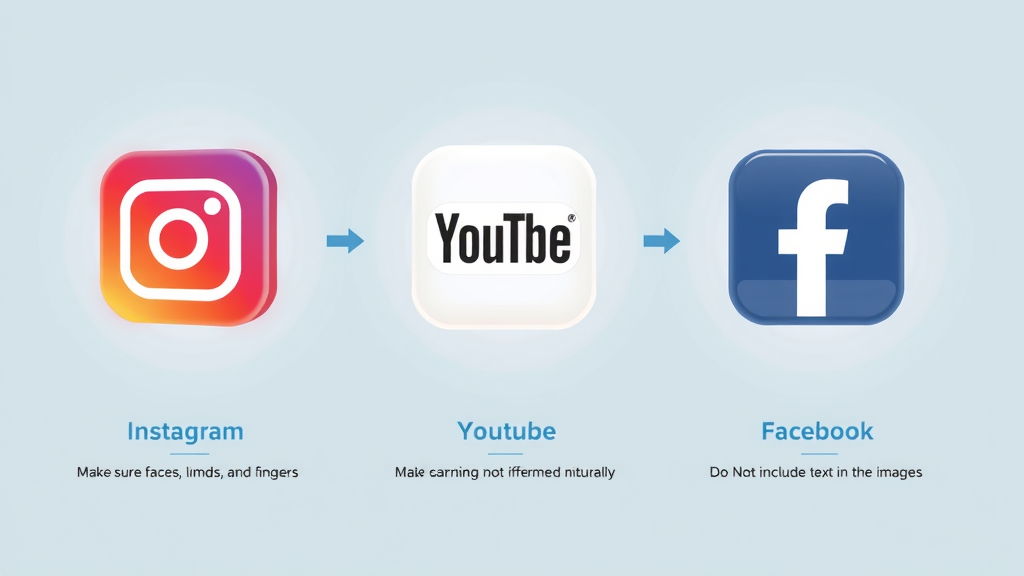Are you ready to unlock real affiliate marketing results, but unsure which pitfalls could derail your success before you start earning passive income? For every new affiliate marketer eager to turn clicks into cash, countless others stumble over costly—but avoidable—mistakes. What sets thriving affiliate marketing beginners apart is foreknowledge: knowing what to avoid, which strategies actually make money , and how to create an authority affiliate site right from the start. This guide unpacks the most common errors, delivers actionable fixes, and reveals the industry secrets that help beginners succeed in 2025 and beyond. Ready to change your affiliate journey forever?
Curious How Affiliate Marketing Beginners Can Sidestep Expensive Pitfalls?
- Explore why so many affiliate marketing beginners fall into the same traps and discover practical solutions to help you confidently start affiliate marketing without regret.

Essential Mistakes Affiliate Marketing Beginners Must Avoid
Ignoring Thorough Research Before You Start Affiliate Marketing
- Failing to analyze affiliate marketing programs and affiliate networks
- Overlooking important data about affiliate products and competition
Thorough research is the bedrock of success for affiliate marketing beginners, yet it's the step most commonly skipped. By jumping straight into promotions without deeply examining affiliate marketing programs and affiliate networks, many newcomers unknowingly align with low-payout or unreliable offers. Before sharing your first affiliate link, analyze the reputation, commission rates, tracking technology, and support levels of any marketing program. This way, you’ll protect yourself from investing time in dead-end partnerships and avoid the disappointment of anticipated commissions that never materialize.
It's also essential to investigate the landscape. Study competitor affiliate sites, understand which affiliate products resonate in your niche, and uncover gaps where your unique experience can shine. Ignoring data about what works (and what doesn’t) leads to poor content targeting and missed opportunities to stand out in saturated markets. Savvy beginners use tools for keyword research, read blog posts from successful affiliate marketers, and actively monitor trends before they ever start affiliate marketing in earnest.
"Success in affiliate marketing begins with diligent research — skipping this step sets you up for costly lessons."

Choosing the Wrong Affiliate Program or Affiliate Partner
- How to evaluate affiliate marketing programs with credibility, commissions, and support
- Avoiding scams when you start affiliate marketing
For affiliate marketing beginners, the lure of high commission rates can sometimes overshadow program credibility and support. Not all affiliate programs are created equal—some offer excellent commission structures yet lack transparency, on-time payments, or responsive affiliate partner support. Take the time to review each affiliate marketing program’s terms, conversion rates, cookie durations, and support policy. Consider reaching out to their affiliate managers to test responsiveness and gauge the availability of resources like product feeds, creatives, or marketing guidance.
Protect yourself from scams by sticking to well-known affiliate networks and checking community reviews. Remember: if an opportunity sounds too good to be true, it often is. Effective affiliate marketers start small, track the reliability of payouts, and diversify their partnerships steadily. This responsible approach lets you avoid disappointment and avoid wasting your efforts on unreliable products or services.
| Affiliate Program | Features | Payout Type | Pros | Cons |
|---|---|---|---|---|
| Amazon Associates | Vast product range, intuitive dashboard | Low % Commission, monthly payout | Easy signup, worldwide trust | Low commission rates, 24-hour cookie |
| ShareASale | Multiple merchants, real-time reporting | CPA/RevShare, variable payout | Diverse options, detailed stats | Payout threshold, some manual approval |
| ClickBank | Digital & physical offers, high commissions | RevShare, fast payout | Recurring products, simple interface | Many lower-quality or saturated offers |
| Rakuten | Brand partnerships, robust support | Payout monthly, CPA | Brand credibility, partner exclusives | Longer approval process |
| Impact | Advanced reporting, global brands | Diverse, custom deals | Premium partnerships, top analytics | Steep learning curve for beginners |
Neglecting Content Quality on Your Affiliate Site
- Importance of product review authenticity
- Avoiding keyword stuffing when writing about affiliate products
Quality content is the backbone of successful affiliate sites. Beginners sometimes rush to publish generic blog posts filled with affiliate links, but readers see right through inauthentic or thin product reviews. Instead, focus on providing honest, in-depth perspectives on affiliate products—which means using the products, testing features, and sharing personal experiences. This authenticity breeds trust, which in turn boosts conversion rates and sets you apart from countless other affiliate marketers.
Additionally, avoid keyword stuffing—overusing the main keyword in an unnatural way makes your site less appealing to both readers and search engines. Write naturally, weave in additional NLP keywords, and remember that your value lies in solving problems for your audience. Thoughtful, original blog posts that prioritize usefulness over sales pitches will help your affiliate site grow sustainable, passive income.

Misunderstanding Affiliate Link and Disclosure Guidelines
- Proper placement of affiliate links within marketing content
- Legal requirements for affiliate marketing beginners — disclosures & transparency
Transparency is essential when using affiliate links. Laws in many countries—such as the FTC in the United States—require affiliate marketers to clearly disclose relationships with brands and the presence of affiliate links within their content. These disclosures should be easy to see and written in plain language, letting your audience know you may earn a commission if they buy via your recommendation. This not only keeps you compliant but helps to build credibility as a trustworthy affiliate marketer.
Effective link placement is another overlooked art. Strategically placing affiliate links within valuable, informative content—rather than dumping them into irrelevant sections—boosts both click-through rates and conversions. Conduct A/B tests across your blog posts or affiliate site to determine where links perform best and always prioritize user experience. Remember, failing to follow disclosure guidelines can result in penalties, loss of audience trust, and even removal from affiliate marketing programs.
Relying Solely on One Affiliate Marketing Strategy
- Diversifying affiliate networks
- Blending SEO, email, and social media for passive income
The belief that a single channel can sustain your affiliate income is a myth. While paid ads or a single social platform may drive results initially, relying solely on one affiliate marketing strategy makes your business vulnerable to sudden algorithm changes or account restrictions. Instead, blend multiple approaches: optimize your affiliate site for SEO, nurture an email list, and actively engage on social media to create several traffic streams.
Diversifying across affiliate networks and product verticals also reduces risk. If one marketing program underperforms or changes its commission rates, you won't lose your entire income overnight. This strategy gives you freedom to test different affiliate partners and continually refine your approach—crucial for building true passive income as you scale your affiliate marketing efforts.
Affiliate Marketing Beginners: Top Tactics to Start Affiliate Marketing Successfully
Set Realistic Expectations Before You Start Affiliate Marketing
- Understand timelines to make money
- Tracking progress and results
Despite what many blog posts and ads claim, making significant income from affiliate marketing takes time, perseverance, and ongoing learning. Affiliate marketing beginners often expect rapid results, leading to frustration or abandoning their efforts after just a few months. In reality, most affiliate marketers see incremental earnings in their first six months as they build authority, traffic, and optimized content.
Setting measurable goals for each month and tracking the growth of your affiliate site, email list, and conversion rates will keep you motivated and on the right trajectory. By developing a results-oriented mindset—celebrating progress as much as profits—you’ll be far more likely to achieve long-term success in the affiliate marketing space.
"Building a rewarding affiliate marketing income takes time, perseverance, and strategy — overnight success is a myth."

Build Authority as an Affiliate Marketer
- Crafting valuable content and authentic product reviews
- Using social media to grow your affiliate marketing reputation
The most successful affiliate marketing beginners focus on becoming trusted resources in their niches. This starts with consistently publishing in-depth, helpful blog posts and product reviews that answer real user questions and pain points. Use your own experiences with affiliate products to add depth and credibility, and avoid copying reviews from elsewhere—a surefire way to lose trust and search engine rankings.
Social media is a powerful authority-building tool. By sharing tips, live video product demonstrations, and answering audience questions directly, you forge a stronger bond with followers and attract organic shares. The more actively you engage, the quicker your reputation as a reliable affiliate marketer will grow, and the more likely brands will offer you exclusive affiliate marketing partnerships and better commission rates.

Optimize Your Affiliate Links for Conversions
- Placement, A/B testing, and tracking affiliate link performance
Optimizing affiliate links isn't just about adding more of them—it's about placement, context, and measurement. Carefully integrating affiliate links where they naturally support the narrative of your blog post or affiliate site makes readers more likely to click and make a purchase . Using tracking parameters and analytics tools helps identify which blog posts, banners, or pages drive the highest conversion rates.
Experiment with link styles (text vs. button), colors, and positions within your content. A/B testing different formats helps affiliate marketing beginners discover what works for their specific audience and product category. Continually refine placement based on performance data to maximize clicks and affiliate income.
| Niche | Search Volume | Competition Level | Commission/Payout |
|---|---|---|---|
| Health & Supplements | High | High | Up to 40% RevShare |
| Software & Online Tools | Medium | Medium | $50-$150 CPA |
| Finance & Investing | Medium | High | $100+ CPA |
| Home & Garden | High | Medium | 4-8% Sale |
| Online Education | Medium | Low | 10-30% RevShare |
Leverage the Power of Affiliate Networks and Affiliate Partners
- Working with affiliate networks for better offers
- Building relationships with affiliate partners to access exclusive products
One of the fastest ways for affiliate marketing beginners to scale earnings is by leveraging established affiliate networks. These platforms curate reputable affiliate programs across dozens of industries, simplify tracking, and often provide professional support to help nurture your growth. When you join a top affiliate network, you unlock access to exclusive or high-payout offers and can easily diversify your income streams.
Never underestimate the value of strong relationships. Reach out to affiliate partners directly, ask questions, and provide feedback on marketing creatives. Affiliates who communicate regularly with their partners are often first in line for beta launches, bonuses, or custom deals tailored to their affiliate site’s audience. Building rapport in the affiliate marketing community fosters long-term opportunities beyond just earning a commission.

How Social Media Accelerates Success for Affiliate Marketing Beginners
Best Social Media Platforms for Affiliate Marketing
- Pros & cons of Instagram, YouTube, and Facebook for affiliates
Different social media platforms have unique strengths when it comes to affiliate marketing. Instagram offers stunning visual storytelling and influencer reach but restricts clickable links mainly to bio and stories for most accounts. YouTube is ideal for product demonstrations and reviews, helping affiliate marketers build deep trust through long-form content, although video creation takes more effort than static blog posts. Facebook is versatile for community-building and discussion, allowing posts, groups, and even paid campaigns to feature affiliate links directly, but it also faces algorithm challenges and growing competition.
The best platform often depends on your niche, content style, and audience. Affiliates see the best success by repurposing content across these platforms, driving cross-platform engagement and maximizing each channel's unique benefits. Beginners should experiment, track engagement, and focus on where their audience is most active for the best affiliate income results.

Proven Social Media Tactics for Affiliate Marketers
- Using live videos and interactive content
- Building trust and engagement around affiliate products
Live video is a game-changer for connecting with your audience in real time. Demonstrate affiliate products, answer live questions, and showcase results to create a sense of authenticity that pre-recorded content can’t match. Host Q&A sessions, product reviews, and even behind-the-scenes clips to build rapport and educate your audience.
Interactive content—polls, story quizzes, or open-ended questions—encourages engagement and feedback, letting you understand follower interests or pain points for future marketing program selection. The key is always to prioritize building trust: prioritize answering questions, being transparent about affiliate relationships, and offering genuine support, not just sales pitches.
Mistakes to Avoid on Social Media
- Overpromoting affiliate links
- Neglecting community management
While the temptation to post as many affiliate links as possible is strong, overpromotion quickly alienates followers. Social media algorithms often suppress posts perceived as low-value or spammy. Strive for balance—share stories, tips, and educational posts in addition to affiliate promotions. Engaging regularly with followers by responding to comments and managing your community leads to deeper trust and increases the likelihood of conversions.
Active, authentic community management sets you apart from countless impersonal affiliate accounts. Use social listening to discover trending questions and create blog posts or reviews addressing those needs. Being generous with knowledge, transparent with motives, and genuinely building relationships is the secret weapon for any affiliate marketer who wants to outlast fleeting trends on social media.
"Your social media should educate, not just sell — build a following that trusts your recommendations as an affiliate marketer."

Building a Solid Foundation: Choosing the Right Affiliate Marketing Program
- Comprehensive review of best affiliate marketing programs for beginners
- Questions to ask before joining an affiliate program
| Affiliate Network | Main Benefit | Best For |
|---|---|---|
| ShareASale | Huge range of merchants, rapid payments | General niches, fast scaling |
| Impact | Professional tracking, premium brands | Experienced beginners, SaaS/Finance |
| Rakuten | Brand authority, exclusive campaigns | International and lifestyle products |
| ClickBank | Recurring commissions, digital products | Online education, diet/health |
| Amazon Associates | Simple setup, broad product variety | Physical products, new affiliates |
Understanding Commissions, Payout Structure, and Affiliate Partner Support
- CPA vs. RevShare explained for affiliate marketing beginners
- Evaluating marketing program support and training options
Before committing to any affiliate marketing program, it's crucial to understand the difference between CPA (Cost Per Action) and RevShare (Revenue Share) payout structures. CPA rewards you with a flat rate for each conversion (like a sale or lead), making it predictable when marketing high-ticket affiliate products. RevShare pays a percentage of every sale, which is beneficial for promoting recurring subscription products or services, as it allows for passive income growth over time.
Strong support is equally important. Quality affiliate programs provide active support teams, detailed documentation, and regular training or webinars for their partners. Evaluate the resources available: does the affiliate network offer custom creatives, access to high-converting landing pages, or optimization tips? A robust support structure empowers affiliate marketing beginners to compete on a level playing field with established marketers and expedites growth.

Monetization Secrets for Affiliate Marketing Beginners: Make Money and Achieve Passive Income
Sustainable Passive Income Strategies for Affiliate Marketers
- Evergreen content
- Automated email funnels
- Recurring commission affiliate products
For affiliate marketing beginners aiming to make money consistently, passive income is the end goal. Focus on creating evergreen blog posts and guides—timeless pieces of content that continue to rank on search engines and drive clicks long after they’re published. Establishing automated email funnels lets you educate new subscribers about affiliate products over time and boosts earnings without extra effort. Choose affiliate programs with recurring commissions whenever possible so you earn each month as long as customers remain active.
The secret to passive income is building scalable systems, not chasing quick wins. Emphasize content quality, test new offers, and continually optimize your funnel for better conversions. With this approach, affiliate marketers enjoy growing, stable income streams year after year.
"Focus on scalable systems and quality products to create long-term passive income from affiliate marketing."
Tracking Performance: Metrics Every Affiliate Marketing Beginner Should Monitor
- Conversion rates, EPC, and click-through rates
- Tools for affiliate site analytics
Monitoring the right metrics helps affiliate marketing beginners uncover what’s working and which efforts need improvement. Key indicators include conversion rates (the percentage of clicks that result in sales), EPC (earnings per click), and click-through rates for each affiliate link. Track these for every campaign and landing page to spot trends, boost underperforming content, and capitalize on high-earning offers. Use free analytics tools like Google Analytics, as well as built-in dashboards from top affiliate networks, to dig deeper into visitor behavior and optimize every stage of your sales funnel.
Growth-minded affiliate marketers make data-driven decisions. Regularly review KPIs, test new content, and adjust your strategies to keep affiliate income climbing as your site matures.

Common Affiliate Marketing Myths That Cost Beginners Money
- Myth: You need a massive audience to start affiliate marketing
- Myth: All affiliate links are treated equally by search engines
- Myth: Passive income is instant
Don’t let misconceptions derail your progress. You do not need a massive audience to become a successful affiliate marketer; a small, engaged following or niche website often outperforms larger, unfocused pages. Contrary to popular belief, not all affiliate links achieve the same search engine value—context and content quality matter far more than link volume. Finally, the idea that passive income happens overnight is one of the most damaging myths for affiliate marketing beginners; building reliable affiliate income requires patience and strategy.

Avoiding the Biggest Mistakes for Affiliate Marketing Beginners: A Comprehensive Checklist
- Research all affiliate marketing programs
- Diversify affiliate products and networks
- Disclose affiliate links clearly
- Track and optimize campaigns
People Also Ask
How do I become an affiliate marketer with no experience?
- Becoming an affiliate marketer with no experience involves choosing a niche, signing up for beginner-friendly affiliate marketing programs, building a basic affiliate site or social media presence, and learning through reputable educational resources before scaling up.
How to do affiliate marketing as a beginner?
- Start by picking a niche that interests you, join trusted affiliate networks, create content that helps your target audience, place affiliate links strategically, disclose promotions transparently, and regularly track your results.
Can you make $100 a day with affiliate marketing?
- Yes, it’s possible for affiliate marketing beginners to make $100 a day, especially by promoting high-converting affiliate products and using multiple marketing channels. Success depends on consistency, adapting strategies, and continuous optimization.
What is the 80/20 rule in affiliate marketing?
- The 80/20 rule in affiliate marketing means that about 80% of your results will come from 20% of your actions. Focus on the top-performing affiliate links, programs, and content that bring the most revenue.
Frequently Asked Questions for Affiliate Marketing Beginners
- What are the best affiliate marketing programs for beginners?
- How long does it take to see income as an affiliate marketer?
- Is affiliate marketing saturated?
- Do I need a website to start affiliate marketing?
- Are there free tools for affiliate marketers?
All-Time Best Practices for Affiliate Marketing Beginners
- Focus on reader value first
- Always test and compare affiliate programs
- Build long-term relationships with affiliate partners
- Stay updated on affiliate marketing trends
- Comply with all regulations and disclosures
Key Insights and Action Steps for Affiliate Marketing Beginners
- Research and select legitimate affiliate programs
- Diversify approaches using SEO, content, and social media
- Track your results and pivot strategies
Start Your Affiliate Marketing Journey Today
"Every successful affiliate marketer was once a beginner — the difference is that they kept learning and adapted fast."
- Don’t miss out on up-to-date affiliate marketing tips, top product picks, and exclusive partner offers delivered straight to your inbox.
- Sign up now and discover what’s making affiliates money in 2025.
- Short video recap of key mistakes and actionable strategies for affiliate marketing beginners.
- Inspiring video interviews with affiliate marketing beginners who discuss common startup mistakes and the tactics that finally worked.
- Step-by-step walkthrough video on how beginners can evaluate, compare, and join reputable affiliate marketing programs.
Get Affiliate Marketing Tips, Top Product Picks & Partner Offers — Straight to Your Inbox. Sign Up Now — Discover What’s Making Affiliates Money in 2025.
To further enhance your understanding of affiliate marketing and avoid common pitfalls, consider exploring the following resources:
-
Affiliate Marketing for Beginners: Everything You Need to Know : This comprehensive guide from The Muse outlines the pros and cons of affiliate marketing, offering insights into its advantages like low entry barriers and flexibility, as well as challenges such as income unpredictability and market competition. ( themuse.com )
-
How to Do Affiliate Marketing: Step-by-Step Guide for Beginners : AWeber’s detailed article provides a step-by-step approach to starting affiliate marketing, emphasizing the importance of choosing a niche, researching affiliate programs, and creating valuable content that resonates with your audience. ( blog.aweber.com )
These resources offer practical advice and strategies to help you navigate the affiliate marketing landscape effectively.
 Add Row
Add Row  Add
Add 




Write A Comment